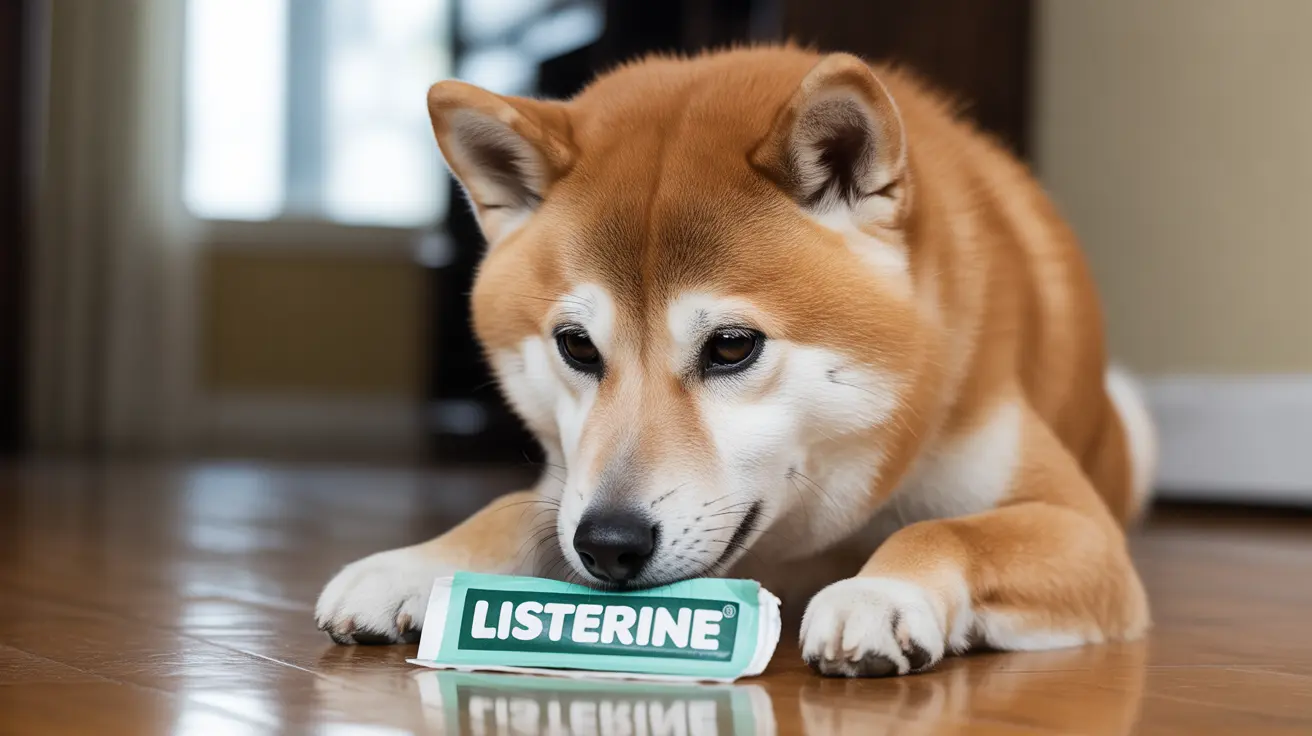If you're concerned about your dog's breath, you might wonder if Listerine strips could offer a quick fix. However, veterinary experts strongly advise against giving dogs Listerine strips or any human oral hygiene products, as they can be dangerous and potentially toxic to our canine companions.
In this comprehensive guide, we'll explore why Listerine strips are unsafe for dogs, what risks they pose, and what safer alternatives you can use to maintain your pet's oral health.
Understanding the Dangers of Listerine Strips for Dogs
Listerine strips contain several ingredients that can be harmful or toxic to dogs. The primary concerns include:
Toxic Ingredients and Their Effects
The most dangerous components in Listerine strips include:
- Menthol: Highly toxic to dogs, causing severe gastrointestinal issues
- Alcohol: Can lead to disorientation and respiratory problems
- Artificial sweeteners: May include xylitol, which is lethal to dogs
- Essential oils: Can cause adverse reactions in pets
Immediate Health Risks
Even a single Listerine strip can cause serious symptoms in dogs, including:
- Vomiting and diarrhea
- Excessive drooling
- Lethargy and weakness
- Difficulty breathing
- Neurological symptoms
- Liver damage (if xylitol is present)
Safe Alternatives for Dog Oral Care
Instead of using human oral care products, consider these veterinary-approved options:
Professional Dental Care
- Regular veterinary dental check-ups
- Professional cleaning when recommended
- Early intervention for dental issues
At-Home Dental Care Options
Maintain your dog's oral health with:
- Dog-specific toothpaste and brushes
- Veterinary-approved dental chews
- Enzyme-based water additives
- Dental toys designed for plaque removal
Addressing Bad Breath in Dogs
If your dog has persistent bad breath, it's essential to:
- Schedule a veterinary examination
- Identify underlying health issues
- Implement a proper dental care routine
- Use appropriate dog-specific products
When to Seek Emergency Care
Contact your veterinarian immediately if your dog has consumed Listerine strips and shows any of these symptoms:
- Excessive drooling or vomiting
- Difficulty walking or standing
- Seizures or tremors
- Loss of consciousness
- Rapid breathing or panting
Frequently Asked Questions
Are Listerine strips safe for dogs to use for freshening their breath?
No, Listerine strips are not safe for dogs. They contain toxic ingredients like menthol and alcohol that can cause serious health problems in dogs. Always use veterinary-approved products for your dog's oral care.
What symptoms should I watch for if my dog accidentally eats Listerine strips?
Watch for vomiting, diarrhea, lethargy, excessive drooling, difficulty breathing, and neurological symptoms like tremors or seizures. If you notice any of these symptoms, contact your veterinarian immediately.
Why is menthol in Listerine strips toxic to dogs?
Menthol is toxic to dogs because their bodies cannot process it properly. It can cause severe gastrointestinal irritation, nervous system problems, and other serious health issues.
What are safe alternatives to human oral hygiene products for keeping my dog's breath fresh?
Safe alternatives include dog-specific toothpaste, dental chews approved by veterinarians, enzymatic water additives, and professional dental cleanings. These products are specifically formulated for canine oral health.
When should I contact a veterinarian if my dog consumes human breath mints or oral care products?
Contact a veterinarian immediately if your dog consumes any human oral care products. Don't wait for symptoms to appear, as early intervention can prevent serious complications.
Remember, your dog's oral health is an important part of their overall well-being. Always choose pet-specific products and consult with your veterinarian for the best dental care routine for your furry friend.






